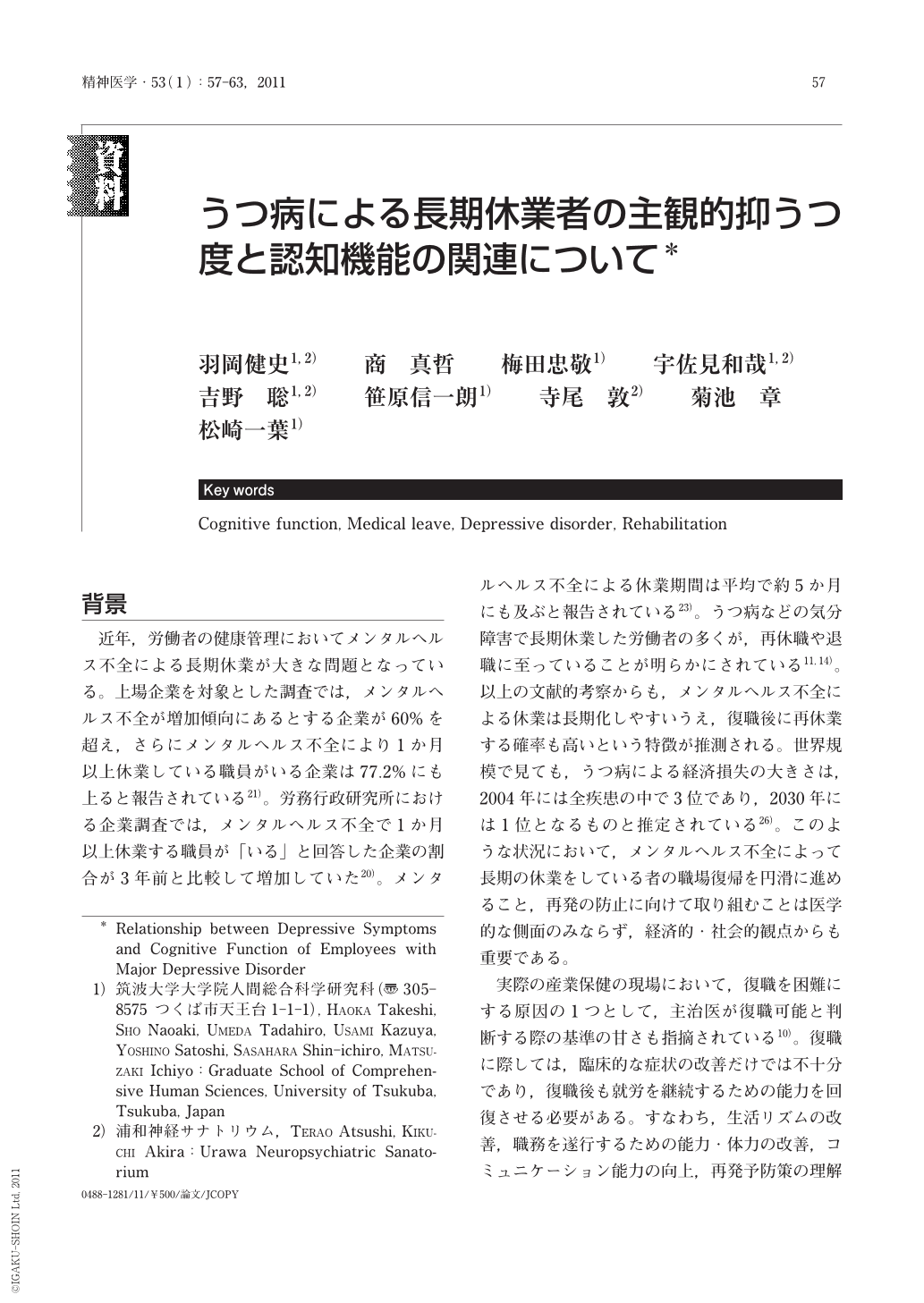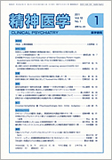Japanese
English
- 有料閲覧
- Abstract 文献概要
- 1ページ目 Look Inside
- 参考文献 Reference
- サイト内被引用 Cited by
背景
近年,労働者の健康管理においてメンタルヘルス不全による長期休業が大きな問題となっている。上場企業を対象とした調査では,メンタルヘルス不全が増加傾向にあるとする企業が60%を超え,さらにメンタルヘルス不全により1か月以上休業している職員がいる企業は77.2%にも上ると報告されている21)。労務行政研究所における企業調査では,メンタルヘルス不全で1か月以上休業する職員が「いる」と回答した企業の割合が3年前と比較して増加していた20)。メンタルヘルス不全による休業期間は平均で約5か月にも及ぶと報告されている23)。うつ病などの気分障害で長期休業した労働者の多くが,再休職や退職に至っていることが明らかにされている11,14)。以上の文献的考察からも,メンタルヘルス不全による休業は長期化しやすいうえ,復職後に再休業する確率も高いという特徴が推測される。世界規模で見ても,うつ病による経済損失の大きさは,2004年には全疾患の中で3位であり,2030年には1位となるものと推定されている26)。このような状況において,メンタルヘルス不全によって長期の休業をしている者の職場復帰を円滑に進めること,再発の防止に向けて取り組むことは医学的な側面のみならず,経済的・社会的観点からも重要である。
A cross-sectional study was performed with 22 patients with major depressive disorder who were employees on medical leave and undergoing an ambulatory rehabilitation program aimied at priming them to return to work. The Japanese version of CES-D questionnaire was used to assess the levels of depression in these subjects. The Stroop test, trail making test, and Miyake's paired verbal association learning test were administered to study the cognitive functioning of these subject. The subjects were classified into 2 groups according to their CES-D scores. Results of the cognitive function tests of the 2 groups did not differ significantly. These findings suggest that improvement in depression do not always relate to an improvement in cognitive function, which, in turn, is related to the performance at work. Moreover, the assessment of depressive symptoms is not necessarily useful in estimating the possibility of an employee returning to work.

Copyright © 2011, Igaku-Shoin Ltd. All rights reserved.


